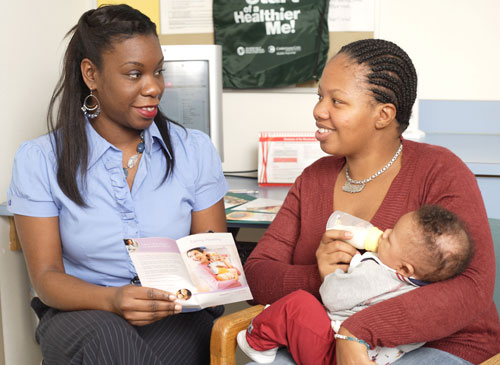Christiana Care plays key role in reducing infant mortality in Delaware


Christiana Care is helping to significantly reduce Delaware’s infant mortality rate, which has decreased an impressive 10 percent.
Infant mortality declined for the third consecutive reporting period, dropping to 8.4 deaths for every 1,000 live births in 2004–2008, according to the Delaware Division of Public Health. From 2000 to 2004, the state’s infant mortality rate was 9.3 deaths for every 1,000 live births. The U.S. rate is 6.8 deaths.
“Christiana Care has been instrumental in creating many initiatives that were key in this achievement,” says Matt Hoffman, M.D., MPH, director of OB/GYN Education & Research.
In a national study, Christiana Care helped demonstrate that progesterone is highly effective in preventing premature labor. Starting in 2007, Christiana Care provided the hormone to obstetric-care providers throughout the state.
As a result, more than 200 at-risk women per year have received progesterone, with more than 80 percent of them delivering after 34 weeks, when most infants are viable.
“By partnering with Division of Public Health and obstetrical providers throughout the state, we have been able to translate research into meaningful changes in the lives of mothers and their newborns,” Dr. Hoffman says.
Targeted efforts are making important strides in increasing healthy outcomes, says David Paul, M.D., chair of the Delaware Healthy Mother and Infant Consortium.
In 2007, Christiana Care worked in partnership with the Division of Public Health to launch the Healthy Beginnings program in the Women’s Health practices, providing a comprehensive approach to health care in an outpatient office practice.
Healthy Beginnings offers preconception and prenatal care to women who are at risk for multiple reasons, including living in high-crime neighborhoods, high stress levels and chronic health conditions. The program also provides support through its Centering Pregnancy prenatal group, and helps to connect women to social programs and other resources that can improve their physical, emotional and mental well-being.
“The problem of infant mortality involves multiple factors,” says Deborah B. Ehrenthal, M.D., medical director. “We believe it takes a comprehensive, multi-modal effort to make a difference.”
Women in the program have greater adherence to healthy behaviors. Mothers-to-be are more likely to eat nutritious foods, quit smoking and exercise regularly.
“The education they receive empowers them to have better lives,” Dr. Ehrenthal says.